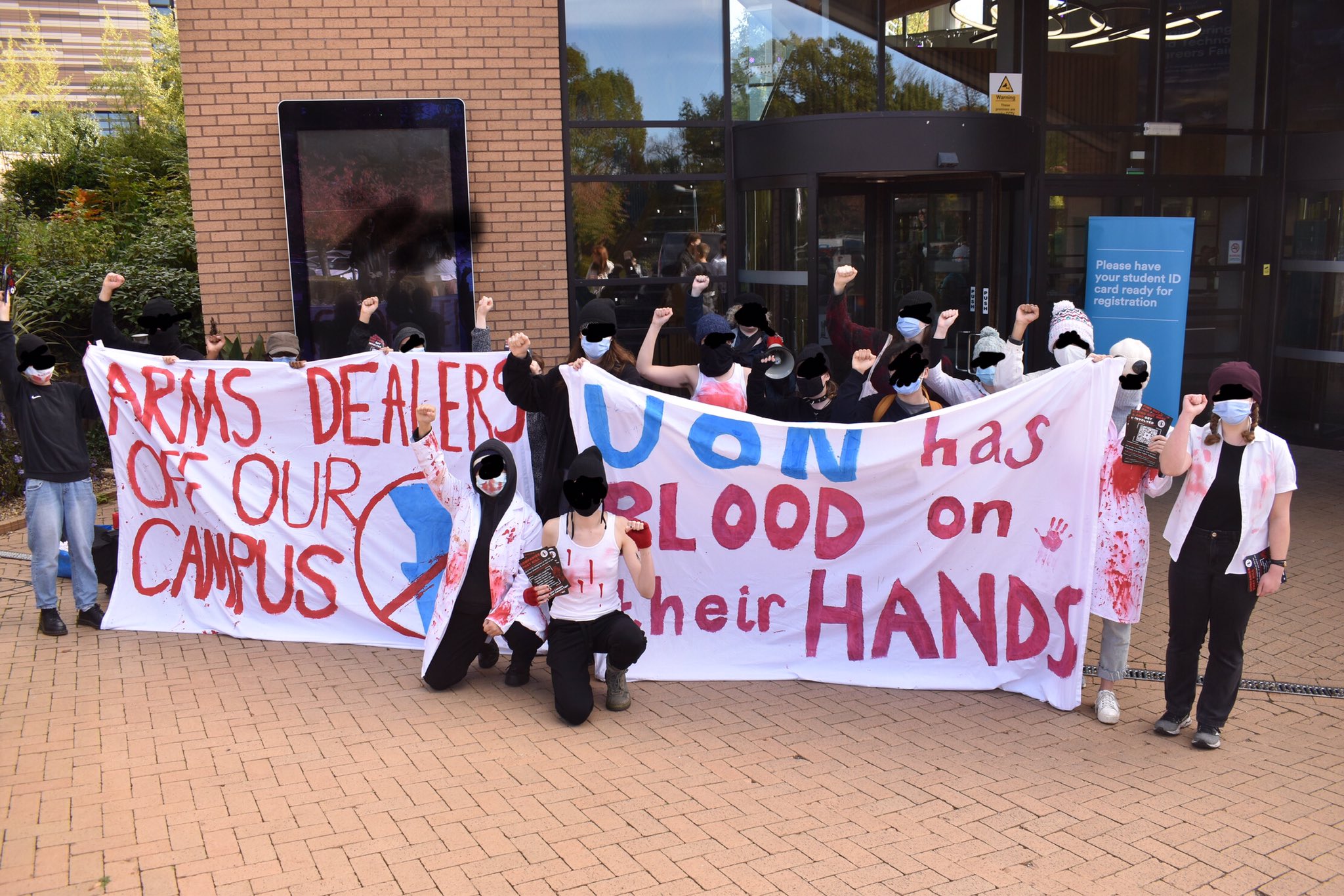Students at UK Universities Are Helping Develop Killer Robots
A new report has found 65 research programmes across UK institutions are at risk of contributing to weapons development.
by Zac Larkham
24 January 2023

When Arnold Schwarzenegger promised he’d “be back” in 1984’s The Terminator, the idea of killer robots was consigned to science fiction. Almost 40 years on and they are back in the form of autonomous weapon systems (AWS). But this time they’re deployed in war zones rather than on silver screens – and research at British universities is helping to develop them.
In March 2021, the UN suggested that autonomous drones had been used by Turkey in Libya’s civil war in what’s believed to be the first recorded use of AWS in a conflict (although this claim is denied by the Turkish drone manufacturer). These were suicide drones or ‘loitering munitions’. Equipped with explosives and facial recognition technology, the weapons hover above a target before flying towards it and exploding, without requiring human oversight.
Similar drones are believed to have been recently deployed by Russia in Ukraine, and some reports say Ukrainian forces are also using semi-autonomous missiles such as the US produced Switchblade 600, a weapon expected to become fully autonomous in three years.
Elite weapons programmes.
In September, a report claimed research in 13 UK higher education institutions was contributing to the development of AWS. The study by Stop Killer Robots (SKR), a coalition of 180 NGOs working across more than 60 countries to limit the use of AI weaponry, found 65 research programmes with outputs at risk of either being incorporated into or facilitating AWS development.
Of those 65 programmes, 26% were directly contributing to AI weaponry. This included projects at Oxbridge, Imperial College London and Warwick University. In some cases – at the University of Birmingham, for instance – funding was provided directly by military and defence bodies like the US Navy or the government’s defence science and technology laboratory.
Rather than employing a department to develop a weapon in entirety, arms companies often commission research bit by bit, said SKR student campaign coordinator Alba Andrés Sánchez. “Most of these projects are not developing a drone that can kill,” she told Novara Media. “Arms companies fund a university to develop signal processing. They ask another university to develop, let’s say, the coordination of drones. They do it very strategically, so each university develops a bit and when you put it all together, you have an autonomous weapon system”.
In some cases, this allows universities to evade responsibility. The Turing Institute, for example, claims its swarm robotics programme – which allows the deployment of drones that can co-exist without needing human control – is being developed for use in disaster relief. But this claim is undermined by the programme’s partnership with Thales, an arms company and major player in the AI military market. Thales recently came under fire after tanks, fighters and helicopters equipped with its technology were used in Ukraine by the Russian military. Swarm robotics are also used by the likes of Israel, which announced in October 2022 it would roll out AI drones developed by Elbit Systems.
Funding shortage.
Students play a key part in AWS research; centres for doctoral training (CDT) are sites of especially close interaction between the two. The SKR report found six defence-partnered CDTs, training students in research relevant to AWS and funding projects “aligned to the research interests of the defence industry”. One PhD programme at the University of Manchester, which aims to improve drones’ navigation with low-quality GPS data, is partnered with BAE Systems.
The usage of this research can be obscured by what the SKR report dubs “spinout companies” like Living Optics – which has received Ministry of Defence funding – populated by academics from the University of Oxford’s physics department. “These are companies created by academics or staff from the university,” said Andrés Sánchez. The point is to create a shield from the public so academics are no longer subject to the likes of FOI requests, she explained.
Chronic underfunding of higher education also allows the creep of arms-related research into UK universities, with arms manufacturers and military bodies picking up research tabs. This enmeshment – a process called militarisation – means students and staff find themselves embroiled in the military-industrial complex.
“It’s a very touchy subject for people who are funded by these companies because they know it’s bad, they just don’t want to lose their PhD,” said River Butterworth, education officer for the University of Nottingham students’ union, and an activist with Demilitarise University of Nottingham. “Most people I spoke to who don’t want to demilitarise say: ‘I literally cannot afford for the university to demilitarise because my PhD will then not be funded’.
“I asked at the beginning of the year about demilitarising, and the university was basically like – ‘OK, work out how we’re going to finance the whole of the engineering department then’.”
Andrés Sánchez believes better funding and guidance are needed to counteract the issue. “We need ethics policies to redirect academics that want to do research in things that can potentially be harmful,” she said, “and not give arms companies the information and the knowledge to develop these things”.
Achieving this requires students and academics to fight for it – and their centrality to the research creates opportunities for resistance. Towards the end of last year, a wave of anti-militarisation protests hit UK universities. Students at universities in Lancaster, Warwick, Nottingham, Bristol and Sheffield disrupted careers fairs and recruitment events. Some also occupied buildings in protest over universities taking money from and producing research for arms companies.
Butterworth sees these protests as a way to reclaim universities for the interests of students and staff, rather than the state and arms companies. “It changes that structure,” they observed. “We don’t have ownership over universities or decisions being made [from] the top. [But] having demilitarised demands listened to [can] change […] where that decision-making is coming from.”
Zac Larkham is a freelance journalist and student activist at Sheffield Hallam University.


